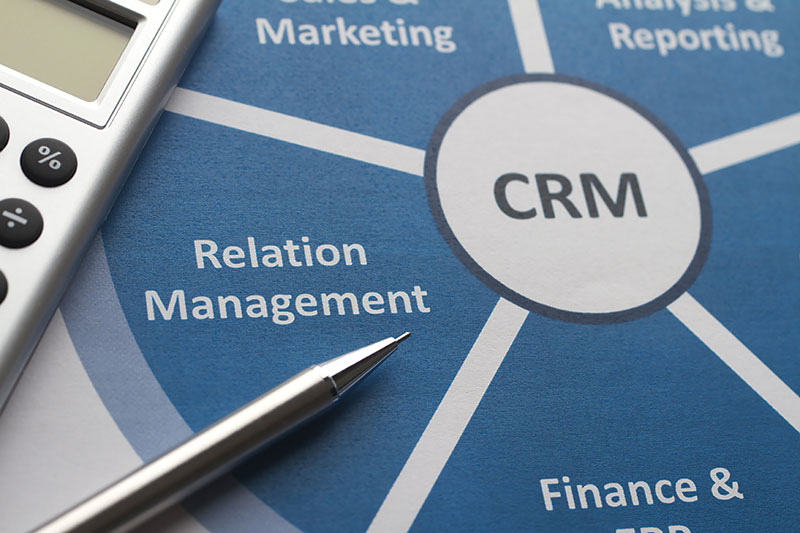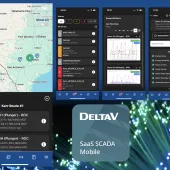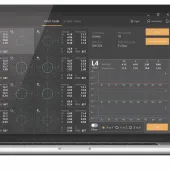Finding the Right Customer Relationship Management System

First published in the June 2015 issue of Quarry Management
Buy it or build it? CDE Global’s marketing executive, Ursula O’Dowd, assesses custom-built Customer Relationship Management (CRM) systems against off-the-shelf systems and examines the impact these can have from an internal organizational perspective
When the acronym ‘CRM’ is used, it is easy to assume that it refers to a standard off-the-shelf item of software which very often does not conform to an organization’s processes and ways of doing business. A stigma has, in the past, been attached to various ‘standardized systems’ and companies have often experienced a series of headaches and frustrations with a CRM system which dictates how they should essentially conduct their business on a daily basis.
While an off-the-shelf system will provide many companies with the basic functionality they need, more often, in order for a company to remain competitive in the industry in which it operates, a custom-built CRM system will help give it an edge and, more crucially, will be unique to the way it does business. For those who require total efficiency, have very distinct business processes or want to achieve and maintain a competitive advantage, a bespoke CRM system is the only route.
The possibilities with CRM have evolved significantly over recent years. While ‘Customer Relationship Management’ may seem to be just another technological phrase, in reality it is much more than that. Albeit customers are integral to a business’s success and should, therefore, lie at the heart of all business processes, stemming from this are various internal stakeholders who can also benefit in a number of ways, and a customized system can ensure that all individual needs are met throughout an organization.
Forbes magazine recently reported that the CRM market is forecast to grow to US$36.5 billion worldwide by 2017. This huge figure, in itself, speaks volumes regarding the sheer focus and demand from organizations for systems that effectively pave the way for business growth; systems that encompass effective lead management, smart reporting, forecasting and, most importantly, solid customer relations.
For many organizations, the advantages of a custom-built CRM system far outweigh those of a standardized system, the main reasons for which are outlined below.
Industry-specific applications
Off-the-shelf solutions do exactly what they say on the tin. They are packaged as standard solutions through a ‘one size fits all’ approach and very often cannot be moulded around the strategies and objectives that an organization sets out to achieve. Large organizations working on a global scale across multiple regions and serving multiple sectors will require bespoke applications that provide them with the flexibility to not only grow, but also to customize the information that they capture from multiple sources and to manipulate this data in the form of customized reporting functions.
CDE adopt a ‘co-creation’ approach to the way they deliver their washing plants; customers are at the core of what the company designs, creates and ultimately delivers, and the same should be said for implementing any kind of product, particularly a CRM system. The crucial missing element with off-the-shelf systems is the ‘co-creation’ component; they are packaged up and boxed off with no active involvement from the end-user and, ultimately, no thorough understanding of how a business conducts itself and what is important to that business.
Companies should reap considerable benefits from the moment data is captured in the form of enquiries, right through to lead nurturing, the point of sale, the range of support services and beyond, if applicable. Most off-the shelf CRM systems will offer the basic features under each business process but these cannot be tailored or delved into further in order to capture exactly what you want. A tailor-made CRM system which allows you to dictate just how much you capture on a customer, gives you strong, concise insights from which you can build up a picture.
Quality lead management
It goes without saying that sales are at the core of every business, regardless of the industry. Sales generate revenue and it is this revenue that funds future growth and expansion. For this reason, therefore, sales lead management is an integral part of any CRM system, whether it is for a small SME or a large global organization. Those in the sales team ultimately want quality information at the click of a button; information that is not cumbersome to maintain. As well as providing sales teams with greater access to customer data in order to identify and engage with every prospect, a CRM system should act as a tool that clearly defines their path to a sale and not be a drain on their time. This, in turn, should shorten the sales process by managing and accessing opportunities in the sales pipeline.
Very often with ‘off-the-shelf’ systems, the sales processes are already pre-defined, with no flexibility to accommodate the wants and needs of the key users, which can prove to be a major hindrance when it comes to user adoption, and in this regard co-creation is crucial. A bespoke CRM system will also allow you to track business activity, interactions with customers and even internal communications among various team members. Moreover, the management of a sales team will prove less laborious through the instant generation of key reports which reflect real-time data.
Customer profiling and highly personalized communications
Organizations work tirelessly to generate a larger customer base, but how easily accessible is this information and, more importantly, what do you know about your existing customers? While most off-the-shelf systems will feature a basic level of customer profile data, such as geographic locations, company types etc, to get a true picture of what makes your customers tick, a tailored system built from the ground up can offer a wealth of information which can be clearly defined and labelled according to your business. This level of customer profiling will place you in a more favourable position when it comes to customer communications. If you know at a glance what products your customers purchase from you and even how often they buy, you instantly have a picture of the key messages that can be derived from this and this can make communications much smarter, more powerful and more engaging in the future. Moreover, this can also lead to increased customer retention through the provision of a more personalized service.
Automation = time saving
The ability to create and embed automatic triggers and email reminder notifications to carry out specific tasks or follow-ups is an invaluable feature of any CRM system, and will allow you to drive a consistent customer service experience and boost productivity. Moreover, integration with Microsoft Outlook or other email clients, such as Google Mail, will allow you to effectively manage your calendar and key tasks. As well as automating ‘to-do’ lists, an effective CRM system can also boost productivity by removing the need for tedious paper-based administration, which, once again, is another huge time saver. A standard CRM system will prescribe what these options are whereas a tailored CRM system will allow you to decide what the key actions are for your sales team, and this again allows you to be the driver of key performance indicators.
A collaborative platform, avoiding information silos
At the heart of any CRM system is the ability to centralize data in one key, easily accessible location. By consolidating and housing all valuable customer information in one centrally integrated place, this will improve collaboration and help streamline communication if the relevant people have easy access to it. This will eradicate the need for various individuals to create and maintain spreadsheets in numerous different file locations. Ultimately, an effective tailor-made system will be able to integrate the main business processes, including sales, marketing, project management and after-sales, across a diverse range of projects. It will also have the potential to allow you to effectively manage complex relationships, including partners and indirect sales channels.
Mobile realm, browser compatibility and offline access
It is one thing having an effective, streamlined and user-friendly CRM system in place, but does this meet the needs of remote, field-based workers who may spend little time in the office? This is particularly pertinent for sales teams whose role requires constant, effective communication with customers. Increasingly, as with anything else in the online domain, accessibility of information is shifting to the mobile realm and this is crucially important for CRM too. To get the most out of the data that you have, individuals must be able to access this through mobile devices, including smartphones and tablets, and this should be in the form of extensions to their desktop versions.
Moreover, it is equally important to ensure that the user interface has been streamlined and is cross-browser compatible for ease of use on a small screen. Also, offline access is vital for people who travel extensively; when Internet connection is not possible, sales teams must be able to carry out basic functions to allow them to continue to do their job effectively. By offering an offline version, this will not hamper the efficiency of the sales team; they will be able to work effectively offline and whatever changes or updates they have carried out should automatically be synchronized to the live version once an Internet connection has been established. With standard systems, this offline function may be limited and may not effectively serve the needs of a remote sales team. Tailored offline apps can be specifically developed as a leaner version of the full CRM system, and, again, you will be in a position to specify what form this should take.
Web-based CRM systems
Web-based systems offer solutions to businesses for managing relationships where there is no hardware or software located at the customer’s premises. The application is accessed solely through a web interface, making the system accessible from any device that can access the Internet. Most web-based CRM systems will offer significant cost savings when it comes to implementation, and ongoing costs can be proven to be significantly lower too.
The ideal CRM solution for enhanced business performance?
In short, in order to remain competitive, particularly on the global stage, a customized CRM system will allow companies to increase business efficiency, win more sales and help keep customers happy – all through the ability to manage a large customer base by segmenting and filtering information effectively.
Heavily customized, integrated solutions are a smarter alternative to the normal run-of-the-mill systems that have already tended to saturate the market. In essence, latest forecasts show that organizations, irrespective of size and scale, are realizing that the most valuable assets they have are solid long-term customer relationships, which, ultimately, can be achieved through custom-designed CRM systems.
CDE Global are currently developing a new online web portal which will offer customers a consistent, streamlined and attentive experience, ensuring that they have easier access to information than ever before. CDE Connect will ensure a responsive approach to customer information requests and technical requirements, while providing them with access to intuitive tools and an extensive knowledge database of their CDE plant.
- Subscribe to Quarry Management, the monthly journal for the mineral products industry, to read articles before they appear on Agg-Net.com








